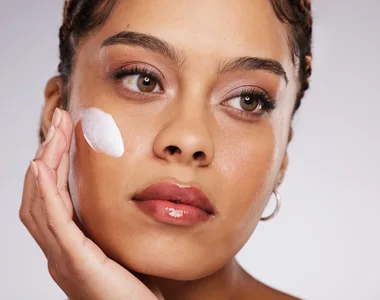
For decades, science has studied the issue of transferring cells from foreign organisms to our own, trying to clarify how they affect its function and whether they can be exploited in other areas, such as the treatment of diseases.
According to Katherine J. Wu, science editor of The Atlantic, who has conducted extensive research on the subject, the first time anyone clearly identified the presence of functional foreign cells in an organism was in the 1970s by scientist Diana Bianchi, who noticed in an examination of a thyroid gland belonging to a woman a row of Y chromosomes: Part of her gland, that is, it was male. This had happened due to a pregnancy of the woman, after some cells had been displaced from the male fetus, which spread throughout her body and somehow adapted to her organs.
Bianchi, now the director of the Eunice Kennedy Shriver Institute, which deals with child health and development, clearly says that this woman's thyroid gland was transformed thanks to fetal cells.
Science now knows for sure that whenever an embryo implants in a uterus and begins to grow, it affects the host body, as its cells spread throughout it as early as the 4th or 5th week of development. These foreign cells can travel to any organ in the body, from the heart to the brain, stay there forever, and genetically adapt to their “host.” This process, called microchimerism, resembles, according to J. Lee Nelson, professor of genetics and rheumatology, an idiosyncratic transplant.
Cell transfer, of course, works both ways. Through the placenta, the fetus becomes the recipient of the mother's cells, which can remain in its body forever. These genetic exchanges continue from body to body, through pregnancies, so that a person's cellular image can consist of parts of many relatives, such as siblings, grandparents, and even uncles. In a way, then, we carry our entire family within us.
Some scientists have focused their research on how these cells can trigger reactions in their host's body, affecting the immune system, pregnancy success, and even an individual's behavior. Others insist that the concentration of these cells is so small in any organism that they cannot be easily detected, let alone studied.
As research continues in many countries around the world, it is very possible that new things will be discovered about how our bodies function based on foreign bodies, without us ever realizing it. One such example is related to organ transplantation, and perhaps the study of embryo-uterine microchimerism will one day give us answers to why some bodies tolerate better any transplanted organ that comes from, for example, the mother and not the father.
For now, in researchers' experiments on mice, it appears that the mother's foreign cells enhance the fetus's immune system. Given this, it's very possible that foreign cells that pre-exist in an organism could determine the success of pregnancy in some way, either by helping the organism preserve and grow embryos, or by triggering a series of attacks on them. If the first scenario is true, then dozens of doors open for treating autoimmune diseases.
Ultimately, the expression “foreign body” may also have a positive connotation, however, until science reaches the level of speaking with concrete scientific data, it will likely be several years. What matters is how it moves forward and every day tries to give us answers that will improve the quality of our lives and make us better understand who we are, where we come from and what we can become.
Suggested articles:





